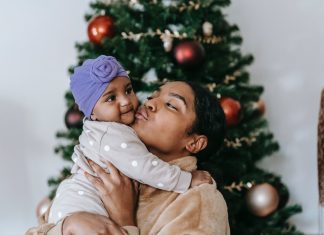 Until recently, I had never imagined a life without continuous birth control. When I started birth control, I was 19 and in college. My doctor prescribed it and told me the pill was the easiest method to control my recurring ovarian cysts. (Now we know that “stopping” ovulation with the pill does not, in fact, lead to fewer cysts, but at the time it was a widely distributed notion.) She also insisted that as a young woman, I should think about my sexual health and make every effort to avoid pregnancy.
Until recently, I had never imagined a life without continuous birth control. When I started birth control, I was 19 and in college. My doctor prescribed it and told me the pill was the easiest method to control my recurring ovarian cysts. (Now we know that “stopping” ovulation with the pill does not, in fact, lead to fewer cysts, but at the time it was a widely distributed notion.) She also insisted that as a young woman, I should think about my sexual health and make every effort to avoid pregnancy.
It’s a conversation I think about often now that I’m married, purposely not pregnant, and no longer use hormonal birth control.
I used hormonal birth control from the time I was 19 until I was 29. I often used birth control to hold off or skip my period while I was vacationing or felt it was ill-timed for work, life, etc. It was helpful for actively avoiding pregnancy, but at some point I came to think of those five days during my cycle as a stress and an inconvenience instead of health-affirming. I also stopped thinking about the other 23-25 days in my cycle and how the extra hormones may be affecting me.
This all changed once I gave birth to two babies within two years. Now solidly in my mid-30s and newly postpartum, I started to notice my cycles were different. I had terrible acne almost two weeks before each period, and the bloating became outrageous. About a week before my period, I was so anxious it was hard to get through the simplest daily tasks. My home and work “to-do” lists seemed to pile up, and my self-critic got harsher. I couldn’t figure out if my mom-rage was related to postpartum, the pandemic, or my period.
These symptoms would ease a bit after each period, but they never went away completely. I started to wonder if it was the birth control pill I was on, so I tried another. Then another. I talked to my primary care physician about my symptoms, and she suggested an antidepressant to be used every day or just around my menstrual cycle to “balance me out” the rest of the month.
As a mom of two kids under two trying to manage life during a pandemic, I thought this may be the answer to my problem. But I was also turned off by the idea of trying more medications that may not resolve the problem.
So I decided to stop taking the birth control pills. I realized that after birthing two babies, my hormones were likely different, and additional hormones may not work for me. If I felt anxious and stressed in the same way without being on birth control, I would start the antidepressant.
For the first and second months, I felt mostly the same. But by the third month, I felt completely different. I could note the changes in my body and cycle related to ovulation or menstruation. These words finally meant something beyond conception because I could see how they changed my mood and appearance. I could eat well to adjust for expected hormonal changes — changes I could track because I was finally learning my body’s own chemistry.
I was never encouraged to learn about the entirety of the menstrual cycle — the parts that aren’t related to bleeding. But I highly recommend it. I’m not sure I would have ever considered avoiding pregnancy without birth control. I also wouldn’t have considered going back to life without the convenience of knowing exactly when my period would start or having the ability to keep it from starting at all. But the benefits have won out — it’s been life changing and health changing, and now I know I’ll never go back.














